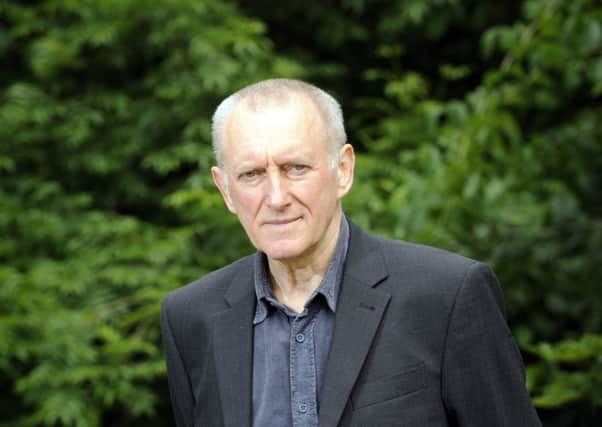Allan Massie's Books of the Year


Robert Harris is the master story-teller of our time, his novels always beautifully constructed. Conclave recounts a fictional, but entirely credible, Papal election sometime in the present. It’s dramatically compelling, politically intelligent, beautifully paced and with a lovely twist in the tail. Narrative is at the heart of fiction, and narrative doesn’t come better than this.
The best Scottish novel I read in a year darkened by William McIlvanney’s death was James Kelman’s Dirt Road. The story of a visit to America by a recently-bereaved father and son, this is Kelman’s warmest and most accessible novel. You have to listen to Kelman’s prose, savouring the rhythm, and you will be well rewarded.
Advertisement
Hide AdNobody would call the Spanish novelist Javier Marías easily accessible – he demands the reader’s close and lively attention. But he is addictive. He has two recurrent subjects: the difficulty of distinguishing between truth and lies (very much to the point today) and the corrupting memories of the Civil War in Spain. Both are central to Thus Bad Begins; both teased out, obsessively and disturbingly. One should add that he is often very funny.
Now that William Trevor has sadly died, Sebastian Barry is perhaps the greatest living Irish novelist, beating John Banville by a short head. Days Without End is a gem, a beautifully written story of the American Cavalry wars against the Plains Indians and then the Civil War, with at its heart an unusual and tender love story; as good as the best John Ford movies, and that’s high praise.
Staying with America, Lionel Shriver’s The Mandibles is an exhilarating dystopian novel of the USA gone crazy. (Nothing to do with Mr Trump.)
Julian Barnes is a novelist rarely content to repeat himself. Only the elegance and economy of his writing are consistent. The Noise of Time is the story of the Russian composer Shostakovich. Barnes gives us the horrors of Stalinism, the corruption of the spirit it imposed, and shows that the determination to survive, come what may, can be heroic.
Helen Dunmore’s Exposure is a clever and moving novel and a nice piece of misdirection, for you are lured to thinking the subject is espionage only to discover it’s the story of a marriage, rooted in love, endangered by deception.
A more conventional, but clever and elegant, spy novel is James Naughtie’s Paris Spring, set in the turbulent weeks of May ’68. Naughtie writes with a cool authority reminiscent of that now neglected master of the novel of espionage, William Haggard.
Advertisement
Hide AdAs criminal investigation becomes a matter for scientists and computers, writers of crime fiction are understandably drawn to the past. Andrew Taylor has written very good contemporary crime, but he has found a new freedom by going back in time. The Ashes of London begins with the Great Fire of 1666 which destroyed Old St Paul’s, and features murder, espionage and Fifth Monarchy men engaged in terrorism. There’s a nice cameo appearance from Charles II and a moving memory of his father’s execution; it’s a thoroughly enjoyable novel.
Finally, three works of non-Fiction. Patrick Cockburn’s The Age of Jihad is made up partly from his dispatches from Afghanistan and the Middle East, partly of reflections or commentary on what he saw then. It makes for grim reading as he exposes the mistakes and follies of Western intervention, but, if you can bear to know how we arrived at the mess we’re in today, this is the book to tell you. Kenneth Roy’s The Broken Journey offers an enlightening and quirky survey of aspects of the public life of Scotland from 1976-99. For some it will revive sometimes puzzling memories; others may think that, whatever our present discontents, things are better now. Or, of course, not, as the case may be.
Advertisement
Hide AdFinally, Ferdinand Mount’s English Voices is a collection of long reviews and essay pieces written over the past ten or so years, many biographical portaraits of politicians and writers. Mount is not only one of our best novelists, but that rarity: a journalist whose work bears re-reading and survives the occasion for which it was written. He is always intelligent and entertaining, and very good – as good, from his different standpoint, as Orwell.